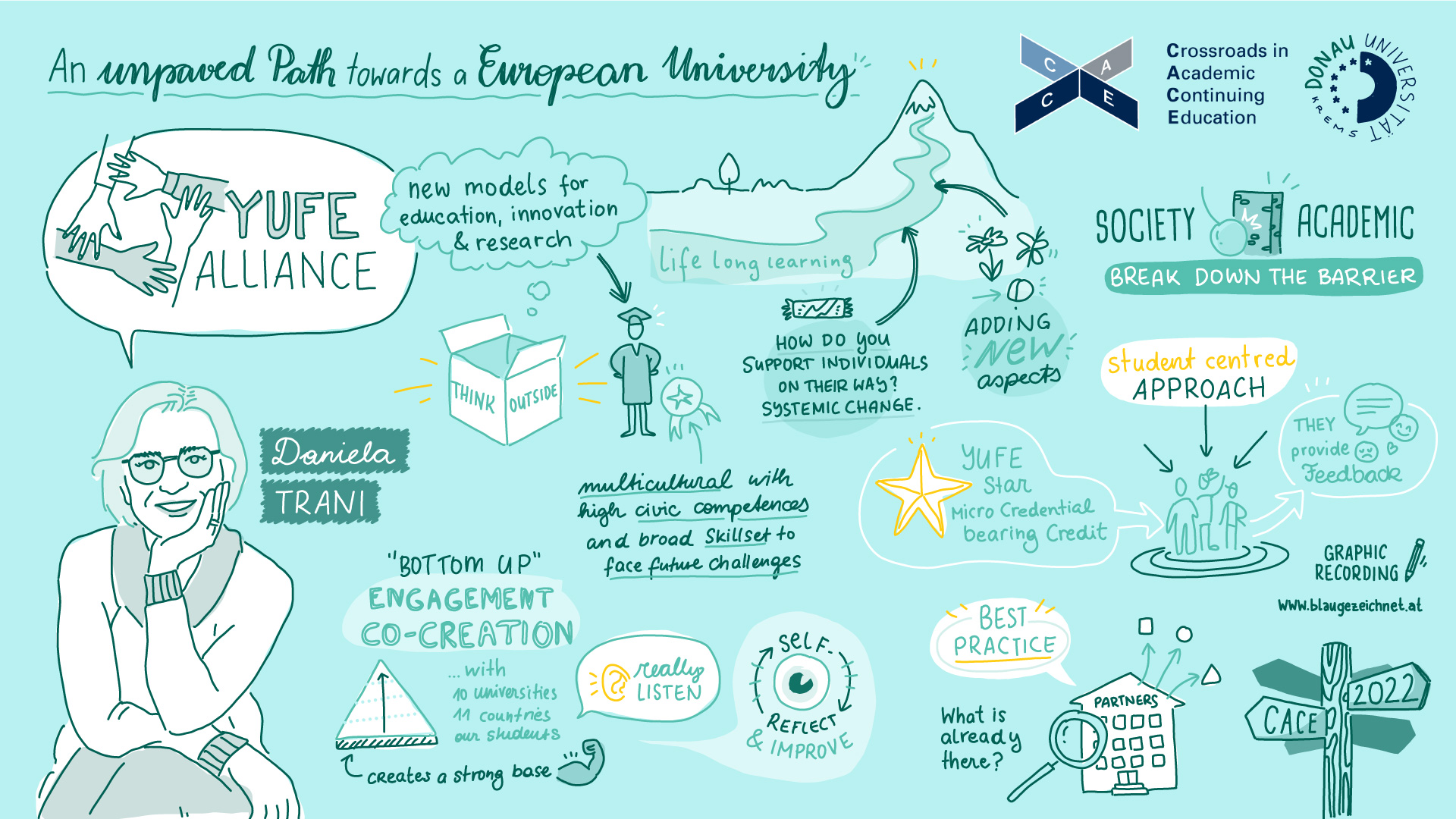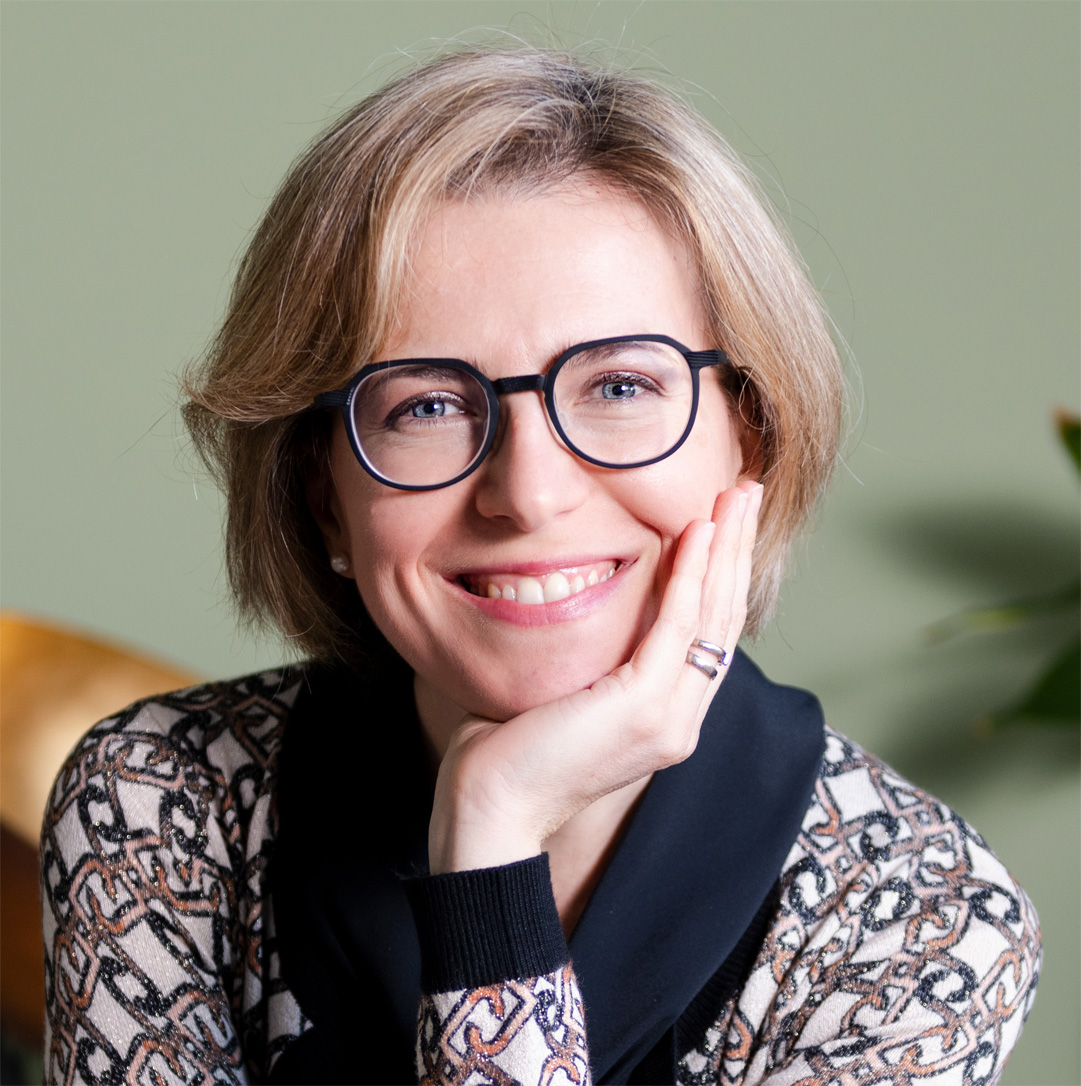blaugezeichnet.2024-09-13-08-27-54.jpg)
The „Young Universities for the Future of Europe“ (YUFE) is one of the first alliances of European universities. Daniela Trani, its director, spoke at the third CACE event about the emergence of the alliance, the vision behind it, and the plans for the future.
In 2017, French President Emmanuel Macron advocated for greater collaboration among European universities in a speech at the Sorbonne. The European Commission embraced the idea and reached out to universities in 2018, urging them to think „outside the box,“ establish new models, enhance innovation in teaching, and open up to new partnerships. Based on these considerations, the YUFE alliance was formed in 2018, founded by ten universities from ten European countries collaborating with four non-academic organizations.
YUFE’s vision was defined as an inclusive European university focused on students and open to all. It aimed to provide personalized, flexible, and lifelong learning. Emphasis was placed on interdisciplinary and intersectional knowledge transfer, breaking down barriers between academia, the economy, and society. Diversity and inclusion were identified as important values, along with collaboration and empathy.
Trani explained that the design of the study programs was based on the question of how all YUFE partners could create the greatest value for the students. While a European degree as such did not yet exist, they managed to offer „Open Programs“ where existing courses could be selected individually – what Trani referred to as a „Europe-wide personalized curriculum.“ Non-academic skills and competencies acquired through language courses or volunteering were also intended to be made visible to future employers. 860 students signed up for the „YUFE Student Journey.“ By combining the offered building blocks, the YUFE Minors and YUFE Bachelor(s) programs were created with the goal of a European degree.
Due to the pandemic, the Virtual Campus was prioritized in 2020. According to the director, significant achievements in online learning were made thanks to collaboration and that none of the partners could have accomplished them on their own. The YUFE partners demonstrated greater resilience and innovation during the peak of the pandemic due to their cooperation.
About Daniela Trani

Dr Daniela Trani (1978) is the Director of the Young Universities for the Future of Europe (YUFE) Alliance since August 2019. Dr Trani has been one of the main developers of the YUFE Erasmus+ proposals selected by the European Commission for both the first phase pilot (2019) as well as the second phase of the European Universities Initiatives (2022). In both calls, the YUFE Alliance has been the top-scoring consortium and in only three years of activity has built a diverse and multifaceted project portfolio that is allowing the partnership to achieve their joint vision and ambition in all missions (education, research and innovation, service to society).
In her current role, Dr Trani coordinates strategy, policy and public affairs of one of the very first European Universities that will pave the way for the development of universities of the future. Her goal is to contribute – together with all partners, students, colleagues and stakeholders – to advance the YUFE vision from being a dream to a full-fledged, societally impactful European University to redefine access to high quality education as well as research & innovation frameworks globally in the coming decade.
Dr Trani holds an MSc degree in Physics (cum laude, 2003) from the University of Naples Federico II, Italy, and a PhD in Thoracic Oncology and Applied Biotechnology (2007) from the Second University of Naples, Italy. During her doctoral training, she was a visiting scholar at Temple University (2004-2008), and after that she worked as NASA/NSBRI postdoctoral fellow in the field of space radiation biology at Georgetown University (2008-2011). After working as senior researcher at the Department of Radiotherapy at Maastricht University (2011-2014), she switched to academic policy and strategy as Senior Advisor to the Executive Board of Maastricht University in 2014.